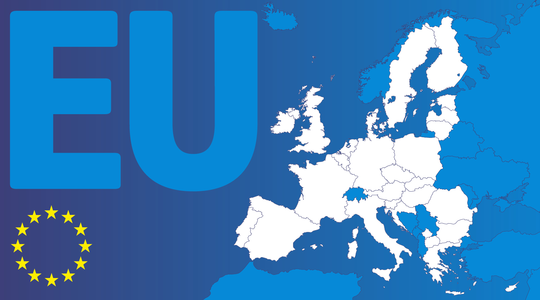South American countries and the EU have completed work on a trade agreement, but not all EU members agree with it

The European Union and the bloc of South American countries MERCOSUR, which includes Argentina, Brazil, Paraguay and Uruguay, have completed work on a free trade agreement. Now 27 EU member states have to agree to it.
The agreement will be the largest for the EU both in terms of the population of the partners and in terms of the amount of tariff reduction, which will amount to 4 billion euros per year with a phased abolition over several years. This is the largest agreement for MERCOSUR, which also has agreements with Egypt, Israel and Singapore. Let's consider the details of the agreement.
Stability
After 5 years of negotiations, the parties agreed to comply with the requirements of the Paris Agreement on climate change and to stop deforestation from 2030. The arbitration panel will make a decision if one of the parties will limit the benefit of the agreement.
Industrial goods
Within 10 years, the EU will abolish tariffs on all industrial goods. And MERCOSUR will cancel customs duties on 90% of exports from the EU, including cars (now the customs duty is 35%), auto parts, machinery (up to 18%), chemicals and pharmaceuticals (up to 14%). Duty on electric cars and hybrids will be reduced for 18 years, but by 25-35% already in the first year.
Agricultural production
The EU will reduce customs duties on 82% of agricultural products from MERCOSUR, and they will cancel tariffs on 93% of agricultural exports from the EU. Tariff quotas will be applied to some goods.
Within 5 years, the EU will introduce a quota for 99,000 tons of beef with a duty of 7.5%, which will amount to 1.6% of the annual volume of beef consumption in the EU. Currently, MERCOSUR supplies the EU with 200,000 tons of beef per year.
The poultry quota is 1.4% of the total EU consumption. Although even now Brazil is the leader in supplies, ahead of Ukraine. The EU also has quotas for pork, sugar, rice, corn, honey and ethanol.
EU farmers are protesting against cheap imports of South American goods that do not meet EU environmental and food standards. But the European Commission does not plan to soften EU standards and is developing measures to protect the market from possible violations.
Within 10 years, MERCOSUR will introduce a duty-free quota for 30,000 tons of cheese (now the duty is 16-28%), as well as quotas for milk powder and baby formula. Tariffs on wines from the EU (currently 20-35%), spirits (20%), olive oil, fresh fruits, canned tomatoes and peaches, pork products, chocolate, and soft drinks will also be gradually reduced.
The agreement recognizes 350 geographical names to avoid imitation of some traditional EU products, such as Parmesan cheese.
Raw
The EU is trying to reduce dependence on China in the supply of minerals, in particular lithium for batteries (against the transition to green energy). The agreement abolishes taxes on the supply of most such goods.
Services
The agreement will remove some restrictions in the field of telecommunications, finance, transport services and even maritime transport, will facilitate the opening of vacancies in these industries and allow the movement of specialists for business purposes. Currently, the EU provides MERCOSUR services worth 20 billion euros per year.


